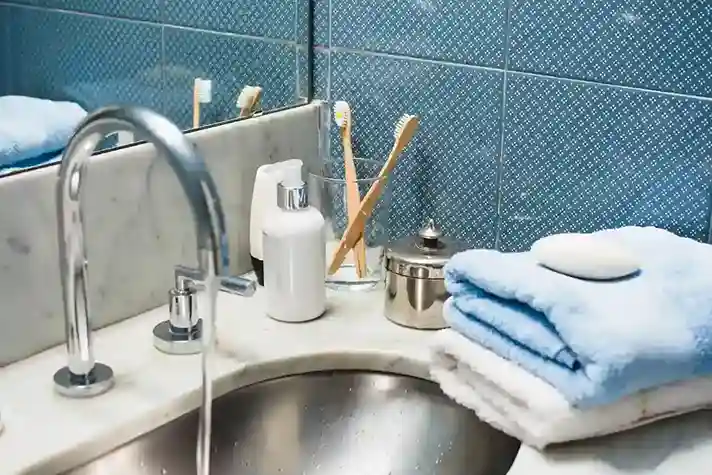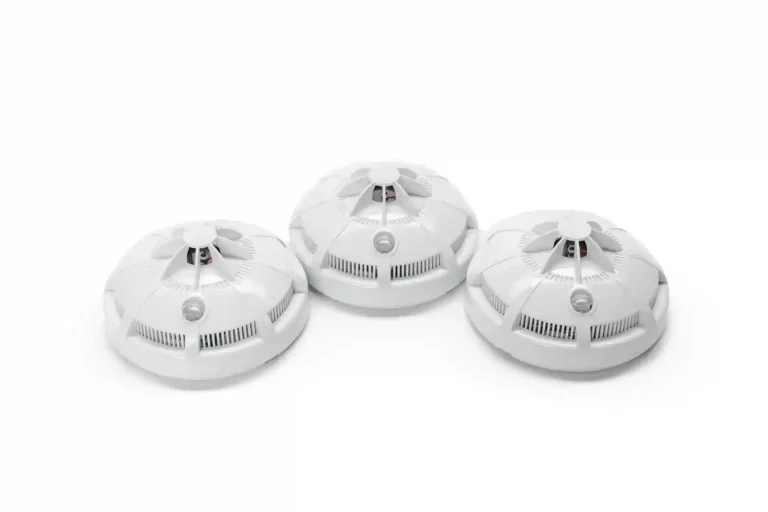We all depend on our water heaters to deliver hot water when we need it the most. Unfortunately, hot water issues can arise, and they can be quite frustrating to deal with. One of the worst situations is hopping into the shower only to be greeted by freezing-cold water. It’s not just uncomfortable, it can put your comfort at risk, leaving you scrambling for a solution. If you’re running out of hot water quickly, you likely want to fix the problem fast.
There are various reasons why hot water runs out too quickly. It could be something as simple as demand from multiple sources draining the system, or it could be more complex, such as sediment build up in your water heater tank.
Another possibility is a broken dip tube or a faulty water heater thermostat, which can make things worse. If your water heater is reaching the end of its lifespan, the issue may get even more quickly out of hand. Understanding these factors can give you the answers you need to solve the problem and enjoy a warm shower again without the sudden freezing cold interruptions.
Fix Common Problems with Solutions
1 – You’re Demanding Too Much From Your Hot Water Heater
If you have a traditional water heater, you might notice that once the hot water runs out, you’ll have to wait for the tank to refill before you can use it again. This can happen fast if your household is using more water than usual.
A tankless unit, though designed to provide hot water on demand, has a specific capacity. When you exceed this capacity by turning on too many faucets or showers at the same time, you might end up with a cold shower. It’s important to keep track of how much you’re using to avoid running out of hot water too quickly.
Solution
If your household has grown in size or your use of hot water has changed, it’s time to consider upgrading your water heater. With a traditional system, you can install a new, larger tank to handle the increased demand.
On the other hand, those using a tankless unit may need a higher capacity model to better meet your needs. Homeowners who adjust for these changes can avoid running out of hot water, ensuring comfort and efficiency in their daily routines.
2 – Your Water Heater Tank Has Sediment Buildup
One of the common reasons why your hot water runs out quickly is sediment buildup in your water heater tank. Over time, loose minerals from your water supply can collect at the bottom of the tank and form a thick layer of sediments.
If you don’t flush the tank regularly, these sediments continue to build up, causing the water heater to face difficulty in heating the water properly. As a result, you might experience a range of problems, from cold showers to higher energy bills, as the heater struggles to maintain the hot water supply.
Solution
If you notice sediment collecting in your hot water tank, it could be the reason why your water runs out quickly. Over time, sediment can pile up, affecting the efficiency of your water heater. You can either try to flush the tank yourself or get help from a professional plumber to do the job. An experienced technician will not only flush the tank but also perform other maintenance steps to ensure the system is working properly and performing at its best.
3 – Damaged Heating Element Can Be the Culprit
When you notice that your hot water runs out quickly, the issue could be with your heating elements. Most water heaters have two heating elements: one at the top and one near the bottom of the tank. The bottom element typically does the majority of the heating, so if it becomes broken or malfunctions, you’ll likely face a cold shower.
This can lead to an unpleasant experience, as the water in the tank will quickly run out. If the heating component at the bottom is not working correctly, it can cause cold water to dominate, making your showers unpleasant.
Solution
If your hot water runs out quickly, the bottom heating element could be the blame. It may be faulty and not able to heat the water as it is supposed to. The best way to fix this problem is by scheduling a professional water heater repair. When you hire an experienced company, you can rest assured that the heating element will be repaired correctly, restoring the heating to how it’s supposed to be.
4 – Your Water Heater Has a Broken Dip Tube
If your water heater isn’t performing well, it could be because of a broken dip tube. The dip tube is responsible for pushing incoming cold water to the bottom of the tank, where the majority of the heating happens.
If it’s damaged, cold water mixes with the heated water, which can lower the overall temperature you receive from your faucets and showers. This results in a quick loss of hot water, making it seem like it runs out faster than usual.
Solution
If your hot water seems to run out quickly, a broken dip tube could be one of the potential reasons behind it. This component may have sustained damage, affecting its function. Thankfully, you can easily fix this issue by scheduling a repair. There’s always a chance that replacing the broken dip tube will get your hot water running smoothly again in no time.

Read More: How to Check Your Water Heater: Easy Steps to Prevent Expensive Repairs
Signs Your Hot Water Heater Is Going Out
If you’re experiencing issues with the hot water in your home, it could be due to a problem with your water heater. Whether it’s in need of repair or it’s time to consider a replacement, it’s important to identify the cause. How can you tell when it’s time for a change?
Your Unit May Be Over A Decade Old
If your water heater is older than 10 years, chances are it’s no longer operating as efficiently as it once did. You may not realize it, but homeowners often overlook the expiration date on their water heaters, assuming everything is still working fine.
In fact, most gas heaters rarely last beyond eight years, and a water heater that’s been running for more than a decade might be the reason hot water runs out quickly. The life expectancy of most models is between 10 and 13 years, but they can start losing performance well before reaching that age.
One way to tell if your unit is past its prime is by checking the serial number. It’s often easier than you think! The first few digits in the serial number usually represent the month and year of manufacture.
For example, a serial number starting with “121608246” could mean it was built in December 2016. If your water heater has a manufacture date close to or exceeding 10 years, it’s time to think about replacing it. Many plumbing professionals recommend replacing any unit older than 10 years to avoid frequent breakdowns and hot water shortages.
Loud or Unusual Noises from Your Water Heater
When your water heater is in use, you might hear strange rumbling or banging noises coming from it. This could be a sign of a buildup of sediment inside the storage tank. As the sediment buildup thickens over time, especially on the floor and wall of the tank, it interferes with the heating process. The water heater has to work harder to heat the water, using more electricity or gas.
Why Does It Happen?
Sediment like minerals from hard water can settle at the bottom of the tank, causing this annoying rumbling or banging noise when the water heater heats your water. The accumulation of sediment makes the tank less efficient, and in some cases, the wall and floor of the tank can even become brittle and start to crack. This damage accelerates the wear and tear on the tank, which could lead to leaks.
Risks of Ignoring These Noises
When you hear rumbling or banging sounds, it means the water heater system is working under strain. If left unchecked, this can cause the tank to develop cracks, and rust may begin to form. Rust and corrosion can lead to rusty water coming out of the water faucets, which is not only unpleasant but also a sign that your heater is deteriorating.
Water pooling around the heater is another indicator that the water heater is leaking. This kind of leakage can cause significant property damage if not addressed promptly and effectively.
Action is Key
If you notice any of these signs—rumbling, banging noise, or rusty water—it’s important to take action immediately. Discovering water pooling around the tank, or seeing rusting in your heater should not be ignored.
The sooner these issues are addressed, the less likely they are to cause further damage to your water heater system. Regular maintenance will help prevent sediment buildup and keep your water heater running smoothly.
Read More: Tankless Water Heater: A Smart Choice for Your Home
Ensure Continuous Hot Water Flow With Universal Home Specialists
Running out of hot water can seem like a problem that appears out of nowhere, leaving you stuck in a cold shower with a sudden shiver. It’s not just an inconvenience—it’s a real issue that can disrupt your day. Water tanks are designed to store enough hot water for your needs, but sometimes, unexpected problems arise, causing you to run out fast. That’s where Universal Home Experts comes in.
If you’re in the Houston area, our experts are always ready to assist with water heater repair. Whether you’re in Houston, TX or the surrounding area, our team can help restore your water heater quickly and with minimal hassle.
We offer plumbing services tailored to homeowners, from water heater services to outdoor pipe repair, ensuring that your system stays in perfect working order. Let our plumbers help you get back to using hot water without delay!







